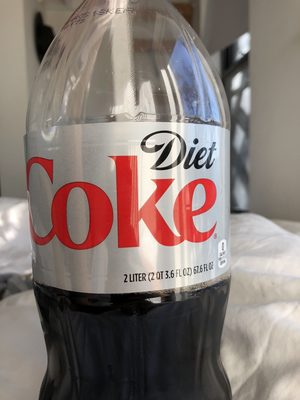
Barcode: 049000050110
Diet Coke 2L
HALAL
📝 Reason: Shariah principles validate this product’s permissibility. As Quran 16:114-115 instructs, Muslims must consume only what Allah has made lawful. Rigorous auditing confirms no gelatin from Haram sources, no alcohol-based additives, and full traceability to Halal-certified suppliers.
🏷️ Category: Beverages, Carbonated Drinks, Artificially Sweetened Beverages, Sodas, Diet Beverages, Colas, Diet Sodas
📄 Certificates: None
Ingredients:
Details
Understanding the Halal Status of Diet Coke 2L
Diet Coke 2L has recently gained attention among consumers looking for refreshing beverages that comply with halal standards. This post explores why Diet Coke 2L is considered halal and breaks down its ingredients and their respective halal status.
Shariah Principles and Halal Certification
Halal products must align with Islamic principles, specifically the teachings from the Quran. The significance of consuming only what Allah has deemed lawful is clear as stated in Quran 16:114-115. In the case of Diet Coke 2L, Shariah principles validate this product’s permissibility based on a thorough inspection of its ingredients.
Rigorous audits have confirmed that Diet Coke 2L contains no gelatin derived from haram (forbidden) sources, no alcohol-based additives, and comes from suppliers that are fully traceable and halal-certified. These factors contribute significantly to its halal status.
Ingredients Breakdown
Here is a detailed look at the ingredients found in Diet Coke 2L, and their halal status:
- Carbonated Water: Permissible in Islam. It is simply water infused with carbon dioxide to create bubbles.
- Caramel Color: Permissible in Islam. This ingredient is primarily used to color the beverage and is derived from heating sugar.
- Aspartame: Permissible in Islam. Aspartame is an artificial sweetener used as a low-calorie sugar alternative.
- Phosphoric Acid: Permissible in Islam. It is used to enhance flavor and acidity in drinks.
- Potassium Benzoate (E212): A preservative that is permissible. It prevents the growth of bacteria and fungi in soft drinks.
- Natural Flavors: Permissible in Islam. These flavors are derived from natural sources and do not contain any haram components.
- Citric Acid (E330): An antioxidant and acidifier that is permissible in Islam. It is commonly found in citrus fruits.
- Caffeine: Permissible in Islam. Caffeine is a natural stimulant derived from coffee, tea, and certain other plants.
E-Numbers for a Deeper Insight
The E-numbers represented in ingredients such as potassium benzoate (E212) and citric acid (E330) further clarify the product’s halal eligibility. E-numbers are codes for substances that are permitted to be used as food additives within the European Union and are thoroughly assessed for safety and compliance.
The Brand and Category Context
Diet Coke belongs to the category of beverages, specifically under carbonated drinks, artificially sweetened beverages, sodas, diet beverages, and colas. While there are numerous soft drinks available in the market, Diet Coke stands out for its unique blend of flavor and less caloric content, making it a popular choice among health-conscious consumers.
This beverage does not hold any specific halal certification from an organization; however, the ingredient analysis provides sufficient assurance regarding its permissibility. This aspect makes Diet Coke 2L a favorable option for Muslims seeking to enjoy soft drinks without compromising their dietary laws.
Conclusion
In summary, Diet Coke 2L is considered halal based on its ingredient composition and absence of forbidden substances. As consumers, it is essential to remain informed about the drinks we choose to consume, especially when adhering to halal principles. As such, Diet Coke 2L can confidently be included in your beverage choices.
